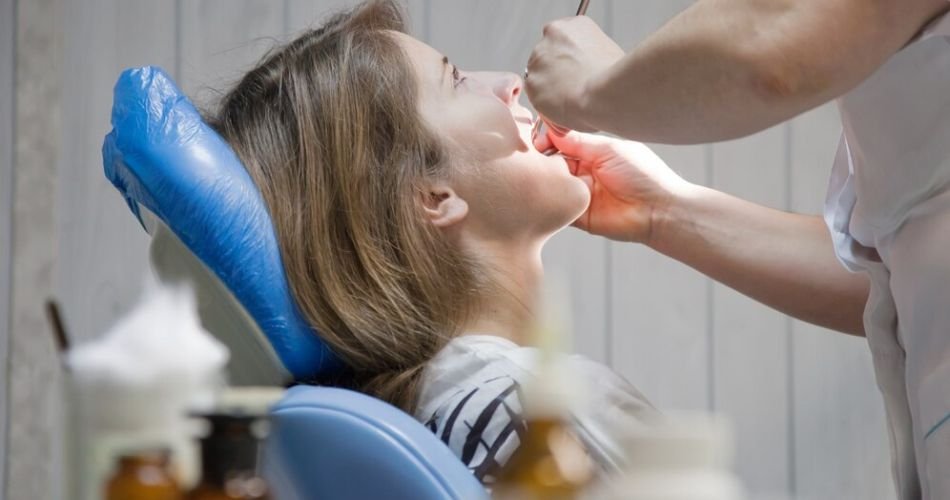Oral mucosal peeling refers to the shedding of the mucous membrane that lines the inside of the mouth. This condition can involve peeling in various parts of the mouth, including the lips, tongue, gums, and inner cheeks. Though it might seem like a minor inconvenience, oral mucosal peeling can cause significant discomfort and may indicate an underlying health issue that requires attention. This article will provide an in-depth look at oral mucosal peeling, including its causes, symptoms, treatments, and prevention tips, to help you manage and understand the condition better.
What is Oral Mucosal Peeling?
Oral mucosal peeling occurs when the mucous lining in the mouth sheds prematurely. The mucosa serves as a protective barrier against infections, and its peeling may leave the underlying tissue exposed and vulnerable. The condition can range from mild irritation to painful sores or blisters, depending on the severity. In most cases, oral mucosa peeling is not a serious health concern, but it can lead to discomfort and, in some cases, can be a symptom of a more serious medical condition.
What Causes Oral Mucosal Peeling?
The causes of oral mucosal peeling can be diverse. It may stem from both internal and external factors that irritate the sensitive tissues in the mouth. These factors can range from nutritional deficiencies to certain medical conditions or even lifestyle habits. Understanding the underlying cause is crucial for effective treatment and prevention.
Internal Causes of Oral Mucosal Peeling
Vitamin Deficiencies: One of the most common internal causes of oral mucosal peeling is a deficiency in vitamins, especially the B vitamins (B12 and folic acid) and vitamin C. These nutrients are essential for the health of skin and mucosal membranes, and a lack of them can cause the tissues in the mouth to become brittle and prone to peeling.
Hormonal Changes: Changes in hormone levels can affect the skin and mucous membranes throughout the body, including inside the mouth. Pregnant women, individuals going through menopause, or those experiencing other hormonal shifts may notice increased dryness and irritation in the mouth, which can result in peeling mucosa.
Autoimmune Disorders: Conditions like lupus, pemphigus vulgaris, and other autoimmune diseases can cause the immune system to mistakenly attack healthy cells, including those in the mouth. This leads to blistering and peeling of the mucosal tissue, often in combination with other symptoms like mouth sores or ulcers.
External Causes of Oral Mucosal Peeling
Poor Oral Hygiene: A buildup of plaque and bacteria in the mouth due to inadequate oral hygiene can lead to inflammation and irritation of the mucous lining. When plaque is not removed, it can contribute to the peeling of the delicate tissue in the mouth. Regular brushing, flossing, and using mouthwash can help prevent this.
Allergies and Irritants: Allergens such as certain foods, dust, or pollen, as well as irritants like tobacco, spicy foods, or alcohol, can trigger an allergic reaction or irritation in the mouth. This can lead to symptoms like oral mucosal peeling. Certain toothpaste ingredients or mouthwashes with strong chemicals can also cause irritation and peeling.
Tobacco Use and Alcohol Consumption: Both tobacco and alcohol are known to dry out the mucosal lining in the mouth, which can contribute to peeling. Smoking and excessive alcohol intake can also reduce the mouth’s ability to heal, leading to prolonged irritation and damage to the mucosal tissues.
Symptoms of Oral Mucosal Peeling
The primary symptom of oral mucosal peeling is visible shedding of the mucous membrane in the mouth. The peeling can occur in patches, or the entire lining of the mouth may be affected. Other common symptoms include:
- Soreness or pain in the affected areas
- A burning or tingling sensation
- Redness and inflammation in the mouth
- Dryness and discomfort, particularly on the lips or tongue
- In severe cases, the development of sores or blisters that can be painful to the touch
If you experience these symptoms frequently, it’s important to monitor the condition to ensure it doesn’t worsen. Chronic or painful mucosal peeling should be assessed by a healthcare professional.
When to See a Doctor
It’s advisable to seek professional help if the oral mucosal peeling persists for more than a few days, or if you experience severe pain, swelling, or the development of large sores. These could be signs of an underlying health issue such as an infection or autoimmune condition that requires medical attention.
Treatment Options for Oral Mucosal Peeling
Treatment for oral mucosal peeling depends on the underlying cause. In mild cases, home remedies may suffice, but more severe cases may require medical treatment.
Home Remedies for Mucosal Peeling
Saltwater Rinse: A saltwater rinse is a simple and effective home remedy for soothing the irritation caused by mucosal peeling. Saltwater can help cleanse the affected area and reduce inflammation. Mix one teaspoon of salt in a glass of warm water and rinse your mouth several times a day.
Hydration and Moisturizing: Drinking plenty of water and using a moisturizing lip balm can help alleviate dryness and prevent further peeling. Staying hydrated is essential for maintaining healthy mucosal tissues.
Aloe Vera Gel: Aloe vera is known for its soothing and healing properties. Applying aloe vera gel to the affected areas inside the mouth can help speed up healing and reduce discomfort.
Medical Treatments for Mucosal Peeling
Topical Corticosteroids: For cases where inflammation and irritation are severe, a healthcare provider may prescribe topical corticosteroids to reduce inflammation. These can be applied directly to the affected areas to help reduce pain and promote healing.
Prescription Mouthwash: In some cases, your doctor may recommend a prescription mouthwash containing anti-inflammatory or antibacterial properties to help heal the mucosal lining and prevent infection.
Antibiotics and Antifungals: If the mucosal peeling is caused by an infection, antibiotics or antifungal medications may be necessary to address the issue.
Preventing Oral Mucosal Peeling
Prevention is always better than treatment. While some causes of oral mucosal peeling may be beyond your control, there are several steps you can take to reduce the risk of developing this condition.
Practice Good Oral Hygiene
Maintaining good oral hygiene is essential for preventing oral mucosa peeling. Brush your teeth at least twice a day, floss daily, and use a mouthwash to kill bacteria. This will help prevent plaque buildup and reduce the risk of irritation in the mouth.
Avoid Irritants and Allergens
If you know that certain foods, beverages, or products trigger irritation or allergic reactions, it’s important to avoid them. Spicy foods, acidic fruits, and tobacco products can all contribute to oral mucosal peeling, so eliminating these from your diet can help reduce the risk.
Stay Hydrated and Eat a Balanced Diet
Drinking plenty of water and eating a diet rich in vitamins A, C, and B12 can help maintain healthy mucosal tissues. Incorporating foods like leafy greens, citrus fruits, and whole grains into your diet will provide the nutrients needed to support oral health.
Conclusion
Oral mucosal peeling can be a frustrating and uncomfortable condition, but with proper care, it can usually be managed effectively. By understanding the causes, symptoms, and treatment options available, you can take steps to alleviate discomfort and promote healing. Remember that if the condition persists or worsens, it’s important to consult with a healthcare provider to rule out any serious underlying health issues.




